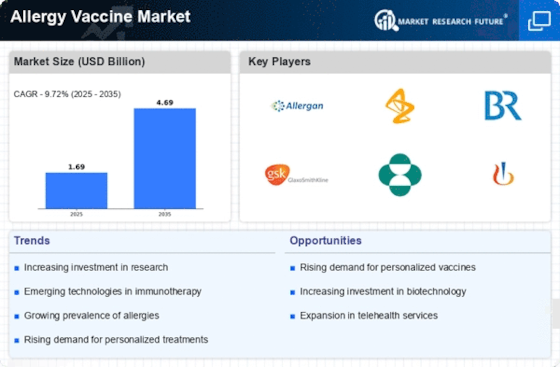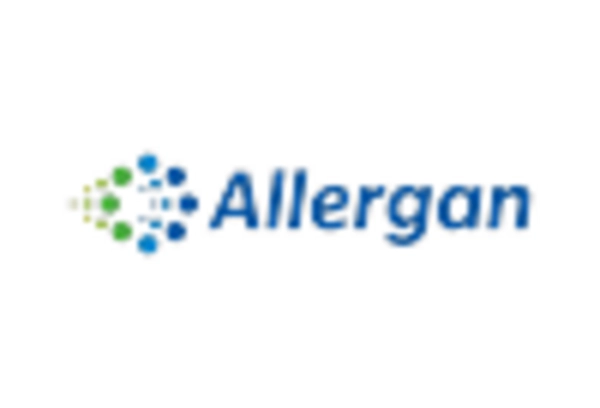Market Analysis
In-depth Analysis of Allergy Vaccine Market Industry Landscape
The market dynamics of the allergy vaccine market are significantly influenced by the increasing prevalence of allergies worldwide. With a rise in environmental pollutants, changing lifestyles, and genetic factors, the number of individuals suffering from allergies has surged, creating a robust demand for effective allergy vaccines. The market transforms in the course of technological improvements, including the field of immunotherapy, especially the process of allergic vaccination construction. Most commonly used therapies are used to just relieve the symptoms but not a cure, nevertheless immunotherapy which is a more comprehensive, and long term approach that deals with the underlying cause of allergies. A part of the shift, fuels the market as even more patients and healthcare providers become aware of the perks which organizations encompass when using immunotherapy. Progressing with the researches and innovations of allergen vaccines gave birth to the technological advances involved. Newer kinds of vaccine formulations, namely, sublingual and epicutaneous are being developed, which provides the patients with new methods that are suitable for them, and more likely effective. Such novel ideas are helping in build up and in roots laid by the market. Allergy-immunotherapy field is characterized by an increase in research and development efforts toward the production of allergenspecific vaccines that allow the treatment to be tailored to a particular type of allergy. It is being catalyzed by a fast evolution of the understanding that not all individuals, amid the existing heterogeneity of allergic responses, react to the same thing or in the same manner to similar remedies. Allergen-specific immunotherapy provides a unique, target-oriented treatment through which allergens to which the particular patient is allergic are dealt hence, improving efficacy and preventing probable side effects. The other factor that is of importance to the allergy vaccine market is the growth of the worldwide healthcare spending. As states and private companies provide more funds for healthcare, a preventive measure such as immunotherapy receives a huge share of this focus. These generous funding provides ground for research and development that results in better and thus newly discovered allergic vaccines. Non-drug therapies are more and more embraced by the patients and this trend is consistent with the adoption of vaccination against allergies. In contrast to the traditional medications, that give only the temporary relief, the allergy vaccines provide a more women of sustainabales option. Besides, the competition forces for a change the market dynamics, a patient needs more advice on available treatment options to make the right and collective decision with a healthcare provider to avoid pharmaceutical way out. The allergic vaccine market, being regulated by several governments, will become the center of attention. The supportive regulatory analysis and timely approvals for allergic vaccines create the atmosphere favorable for both investments and invention in the industry. As more regulatory agencies come to understand the implications of immunotherapy in mediating allergy, companies will get encouraged to develop strategies of research to achieve commercialization.
Despite the positive growth trends, the market faces challenges related to penetration. Awareness about the benefits of allergy vaccines among healthcare professionals and patients remains a hurdle. Overcoming these challenges requires concerted efforts in education and awareness campaigns to highlight the long-term advantages of immunotherapy in managing allergies. Affordability is a critical factor influencing market dynamics. The cost of allergy vaccines, coupled with reimbursement policies, significantly impacts patient access. Market players are strategizing to address these concerns, working towards cost-effective solutions and engaging with healthcare systems to enhance reimbursement options, thereby widening market accessibility.


















Leave a Comment